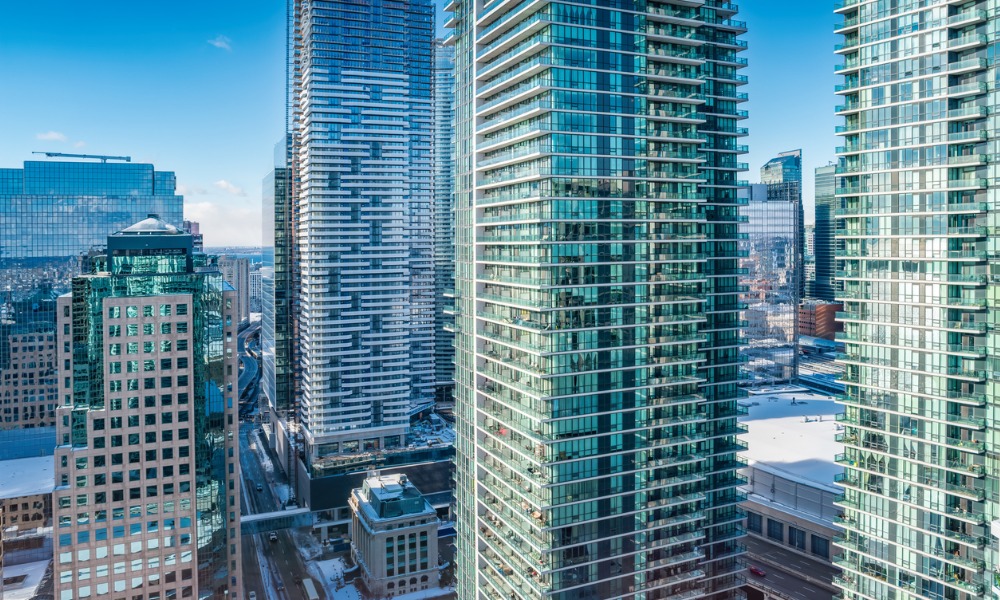Investor losses mount as prices plummet and construction slows

Toronto's condo market is sliding into "recessionary territory" as more investors face negative cash flow on newly built units.
About 77% of investors with mortgages on new Toronto condos had negative monthly cash flow last year, up from 52% in 2022, according to a report by the Canadian Imperial Bank of Commerce (CIBC) and Urbanation. This means that rental income could not cover ownership costs like mortgage payments, fees, and taxes.
Monthly losses for these investors increased to an average of $597 in 2023, up from around $220 a year earlier. The situation seems to have worsened this year, with 81% of owners experiencing negative cash flow through June.
Urbanation president Shaun Hildebrand and CIBC deputy chief economist Benjamin Tal, who both authored the report, noted that the situation has further deteriorated in 2024, with 81% of owners experiencing negative cash flow through June.
"This reality will result in a sharp pullback in completions and a stagnating housing stock in the coming years, which is sure to make the affordability situation even worse," the authors warned.
The financial strain has led to a record number of properties being listed for sale, potentially putting additional downward pressure on prices. Condo prices in Toronto's resale market have already declined 12% from their peak, while new condo prices have dropped 5%.
With investors losing appetite for new projects, sales of pre-construction units have plummeted to levels not seen since the late 1990s. This downturn has had a ripple effect on the construction industry, with nearly 40,000 jobs lost since 2022.
The report highlighted that condo investors play a crucial role in financing new projects, and their retreat from the market could exacerbate Canada's housing shortage, which has been labelled a crisis by politicians across the country.
While the recent interest rate cuts by the Bank of Canada might offer some relief, the authors suggested that a more comprehensive solution is needed. They said construction costs would likely need to decrease before developers can lower prices to levels investors can afford. Additionally, rents and resale prices may need to start rising to attract investors back to the market.
Make sure to get all the latest news to your inbox on Canada’s mortgage and housing markets by signing up for our free daily newsletter here.



